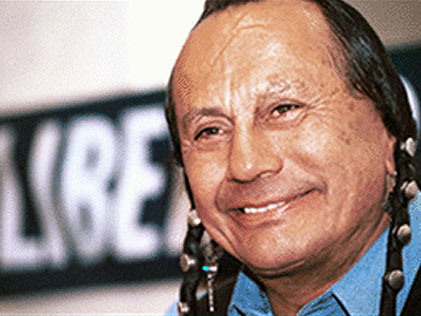According to Means, the bad ones include Windtalkers, Skins, Smoke Signals, Black Robe, and Dances with Wolves. About the much-loved Smoke Signals he says:
Of course, that depends how you define "dysfunctional." If the protagonists are upset, troubled, or angry for any reason, does that mean they're dysfunctional? I wouldn't say so, but maybe Means would. If he's looking for a movie where Indians are saints who have no problems or flaws, he may have to stick to kiddie cartoons.
On the other hand, he may have a point about Pocahontas. I think prior movies--e.g., Little Big Man, The Mission, and Dances with Wolves--condemned European and American attitudes toward Indians. But did they explicitly say the foreigners came to rape, plunder, and kill? Pocahontas may well contain the strongest and most explicit condemnation of Western imperialism on film.
At least Means is consistent. He touted Pocahontas as a great film when it came out and he's still touting it. He doesn't seem to mind that the Indians are noble, tree-hugging nature worshipers. Or that Pocahontas is a model-like young woman rather than a child who wouldn't have fallen in love with an adult. As long as the movie paints Europeans in a bad light and Natives in a good light, who cares how much it distorts history?
What about Means's other roles? E.g., The Last of the Mohicans, Song of Hiawatha, Black Cloud, Into the West, Pathfinder. Their reviews ranged from pretty good (The Last of the Mohicans, Into the West to pretty bad (Song of Hiawatha, Pathfinder). Why is Means making these movies if he isn't proud of them?
For more on the subject, see Russell Means Speaks and The Best Indian Movies.


No comments:
Post a Comment